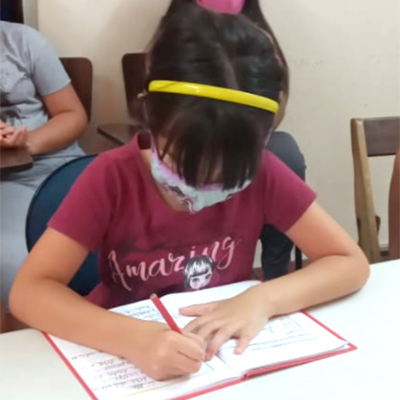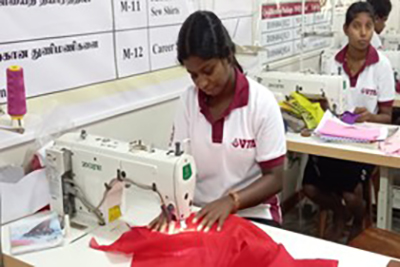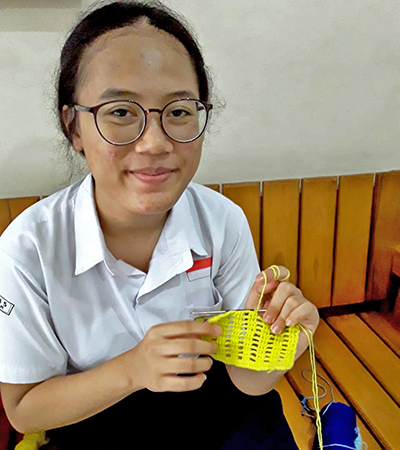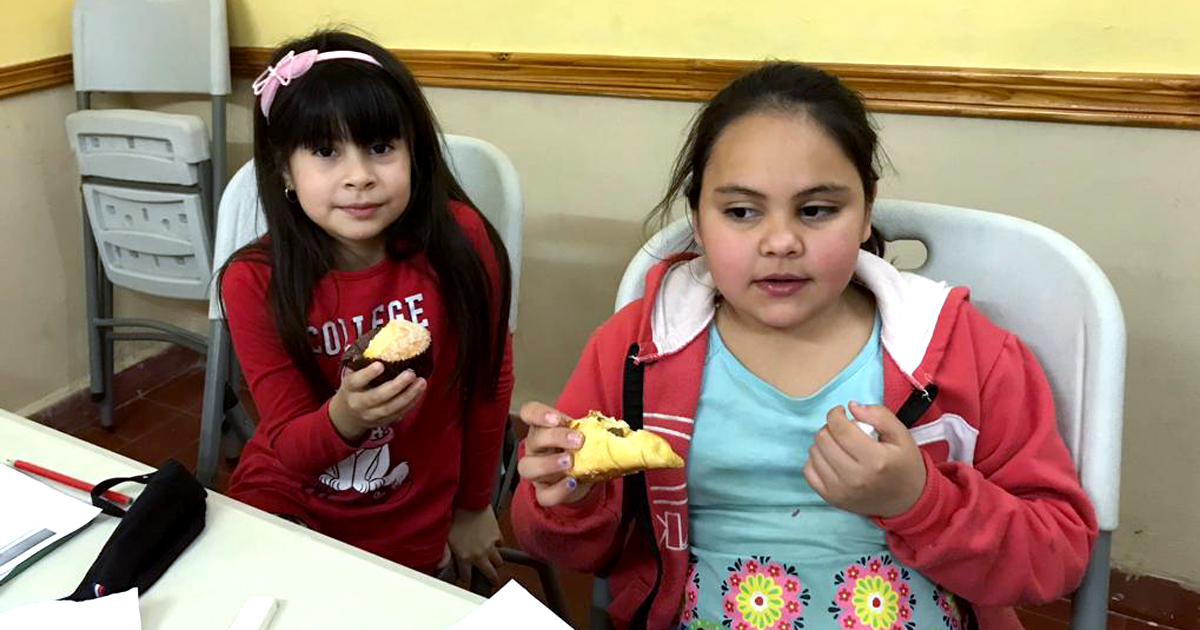I’ve often heard people instruct girls growing up to stop doing something “like a girl.” People say “stop running like a girl” or “stop playing soccer like a girl” or even more harmful instructions like “stop crying like a girl,” as if the reality of being a girl automatically connotes being insufficient or weak.
“The phrase ‘like a girl’ to me defines weakness, lack of character, not much courage,” says Mary Milne, an ambassador with the international development department from Sudbury, Ont. The Ambassador Program is aimed at mobilizing youth and young adults for global advocacy and international mission work.
The “like a girl” narrative paints women and girls as weaker and less deserving of opportunities. But what’s wrong with being like a girl? The Bible teaches us that God created all people in his image. Around the world, systemic processes prevent girls from accessing the same resources and opportunities as boys. Limiting girls’ access to education and employment and reinforcing traditional gender roles in society keeps girls from reaching their full potential.
In 2011, the United Nations declared October 11 International Day of the Girl Child to recognize girls’ rights and to focus attention on the need to address the unique challenges girls face.
“As half of humanity, girls are integral members of society when it comes to solving the many issues the world is facing—and will face in the future.” ROBYN GOODYEAR
Comprising half of humanity, girls are integral members of society when it comes to solving the many issues the world is facing—and will face in the future. Climate action, decent work, economic growth, disease prevention and reduced equality are just some of the United Nations’ 17 Sustainable Development Goals, a global strategy to be implemented by 2030—but girls are an essential factor in the achievement of each goal.
As tomorrow’s workers, innovators, leaders and business owners, girls need to be effectively supported at all stages of life. “Education, I believe, is key to understanding, protecting and encouraging the girls in our community,” says Mary.
With support from The Salvation Army, girls are taking back the phrase “like a girl.” With a focus on education, girls are provided with holistic, sustainable support in their most formative years and are empowered to pursue their goals.
Here are four stories of how The Salvation Army in Canada and Bermuda, through the international development department, is supporting girls’ education around the world:

Africa
Assata is an 18-year-old girl who attends The Salvation Army’s Len Millar School in Sinkor, Liberia. When she was orphaned by the Ebola crisis, she could not afford to pay school tuition fees, in spite of selling goods on the street every day after school and on weekends. With the support of The Salvation Army in Liberia, she receives financial assistance with school fees and personal counselling in addition to her education.
“I have a dream of becoming a professional nurse,” says Assata, “because it will enable me to serve humanity in a different capacity. I would also like to operate or manage a home for less fortunate/privileged girls like me so I can give back to society.”
Americas and Caribbean
Ashley is eight years old and attends the Curious and Brave after-school program at The Salvation Army’s Rayito de Luz Centre in Paraguay. The Curious and Brave program supplies well-rounded, holistic educational support that makes available basic needs for students and families and, as the name suggests,encourages them to be curious, to think critically, and to bravely communicate and defend their feelings, emotions and ideas within a safe space. The program also provides necessary school supplies and muchneeded nutritional snacks. With the assistance of this program, Ashley has made significant improvements in reading and math, encouraging her to stick to her studies. She also feels confident in contributing ideas and sharing her opinion, an important quality in ensuring a bright future.

South Asia
Gnanamathi attends the Shalom Child Development Centre (CDC) in Sri Lanka. With four brothers, Gnanamathi was forced to drop out of school due to her family’s finances. At The Salvation Army’s Shalom CDC, she receives essential meals and school supplies as well as assistance with tuition fees, allowing her to continue her studies. She has learned to read and write and is taking a sewing course through the vocational education program. She is interested in pursuing tailoring as a career, feeling confident about facing the world.
“I want to achieve a higher position in my life,” she says.
Thanks to The Salvation Army in Sri Lanka, Gnanamathi’s dreams have a chance at coming true.
South Pacific and East Asia

Deby, aged 15, has been a resident of the Denpasar Anugerah Girls’ Home in Bali, Indonesia, for 12 years. With no family, Deby receives loving care from the officers and staff at the home. She obtains assistance with school and is encouraged to take part in other activities, such as dancing, music and knitting. She’s also learned essential skills such as cooking and baking. She is proud of having represented her school in the 100-metre running competition—and winning! Deby has a keen interest in computers and dreams of continuing her education with a focus on multimedia.
“I aspire to become an IT expert because I knowthat, in the future, IT needs will be very beneficial to society,” she says.
With your generous support of the international work of The Salvation Army, girls are able to dream of a better, more equal world for all.
Robyn Goodyear is the international project support co-ordinator for The Salvation Army’s international development department.










Comment
On Tuesday, October 18, 2022, Tonderai Rukato said:
Leave a Comment